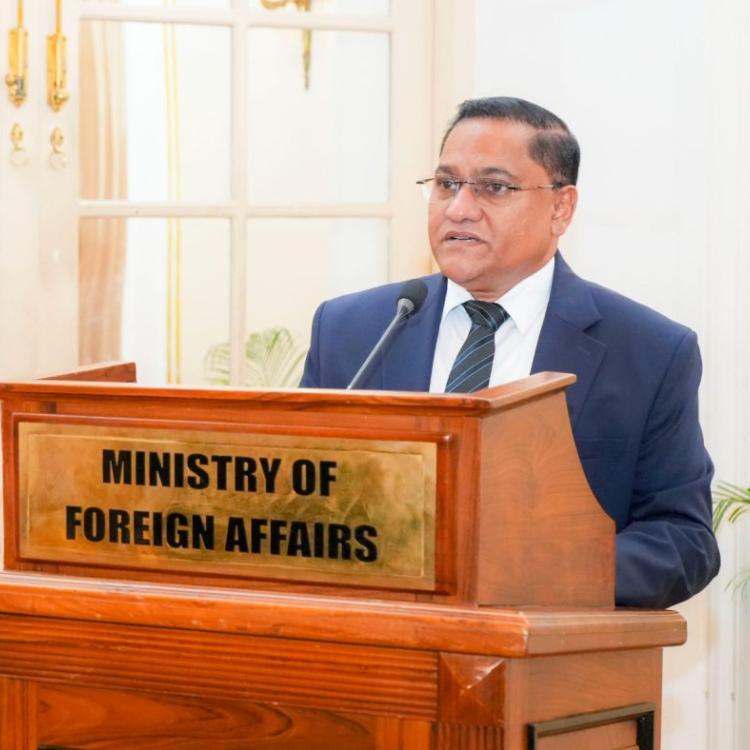The Russian Embassy in Colombo has addressed recent media reports suggesting that Sri Lanka’s application for BRICS membership had been rejected, clarifying that no final decision has been made.
According to an official statement from the embassy, Sri Lanka’s application to join the BRICS coalition—which comprises Brazil, Russia, India, China, and South Africa—is still under consideration. The embassy emphasized that Sri Lanka’s interest was welcomed by the BRICS leadership and that its application will be evaluated “in full consultation and consensus,” alongside applications from other nations.
This clarification counters earlier remarks from Sri Lanka’s Cabinet Spokesperson Bandula Herath, who indicated at a post-Cabinet media briefing that Sri Lanka’s late bid for BRICS membership had been declined by the group. “The nine member countries have decided not to entertain any new membership this time,” Herath told reporters, explaining that the timing of Sri Lanka’s application—submitted just before the recent BRICS summit—had likely impacted its chances. He added that while Sri Lanka’s membership in the BRICS coalition was not currently an option, the government was exploring entry into the New Development Bank (NDB), an institution founded by BRICS to finance infrastructure and development projects.
Shortly after Herath’s remarks however, Sri Lanka’s Foreign Ministry also issued a statement saying that it’s application would be considered later.
“Local media reports that Sri Lanka’s application has been rejected are wrong,” read the Russian embassy’s statement. It emphasized that Sri Lanka’s bid remains on the table, with discussions still underway among BRICS members about the criteria and process for expanding membership.
Last month BRICS formally welcomed four new members - Egypt, Ethiopia, Iran, and the United Arab Emirates – at a summit that saw leaders from 36 countries, as well as the UN Secretary General, in attendance.
Earlier this year, Herath said Sri Lanka was looking to join BRICS for "peace & development, and reducing reliance on western financial institutions".


